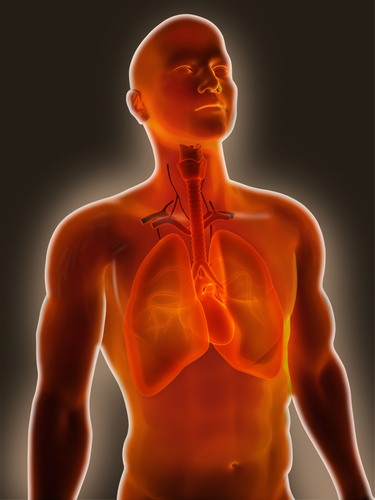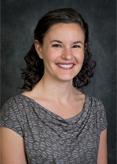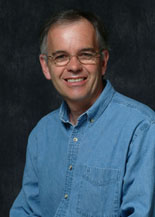Pulmonary Fibrosis Healing May Be Promoted By “Beneficial Inflammation”
Written by |

 Inflammation has long been considered an integral element of the biological process that leads to deadly scarring in idiopathic pulmonary fibrosis, one of a broad category of lung diseases classified as Interstitial lung disease (ILD) that includes more than 130 disorders characterized by scarring (i.e. fibrosis) and/or inflammation of the lungs. ILD accounts for 15 percent of the cases seen by pulmonologists (lung specialists). In ILD, lung tissue becomes inflamed and ultimately scarred.
Inflammation has long been considered an integral element of the biological process that leads to deadly scarring in idiopathic pulmonary fibrosis, one of a broad category of lung diseases classified as Interstitial lung disease (ILD) that includes more than 130 disorders characterized by scarring (i.e. fibrosis) and/or inflammation of the lungs. ILD accounts for 15 percent of the cases seen by pulmonologists (lung specialists). In ILD, lung tissue becomes inflamed and ultimately scarred.
Inflammation and scarring of tissues of the interstitium of the lung — the area in and around the small blood vessels and alveoli (air sacs) where exchange of oxygen and carbon dioxide take place — leads to a decrease in the lungs’ ability to extract oxygen from the air.
 However, new research at National Jewish Health suggests that a little inflammation may also actually be crucial to healing and repair processes in the lungs. Elizabeth Redente, PhD, assistant professor of cell biology at National Jewish Health, and her colleagues reported in the April 2014 issue of the American Thoracic Society’s American Journal of Respiratory Cell and Molecular Biology that the pro-inflammatory cytokine TNF- can speed recovery of injured lungs and accelerate the resolution of established fibrosis in a mouse model.
However, new research at National Jewish Health suggests that a little inflammation may also actually be crucial to healing and repair processes in the lungs. Elizabeth Redente, PhD, assistant professor of cell biology at National Jewish Health, and her colleagues reported in the April 2014 issue of the American Thoracic Society’s American Journal of Respiratory Cell and Molecular Biology that the pro-inflammatory cytokine TNF- can speed recovery of injured lungs and accelerate the resolution of established fibrosis in a mouse model.
The research article, entitled “Tumor Necrosis Factor- Accelerates the Resolution of Established Pulmonary Fibrosis in Mice by Targeting Profibrotic Lung Macrophages“ (American Journal of Respiratory Cell and Molecular Biology, 2014; Vol. 50, No. 4 (2014), pp. 825-837. DOI: 10.1165/rcmb.2013-0386OC), is coauthored by Elizabeth F. Redente, Rebecca C. Keith, William Janssen, Peter M. Henson, Luis A. Ortiz, Gregory P. Downey, Donna L. Bratton, and David W. H. Riches, variously of the Program in Cell Biology, Department of Pediatrics, Department of Medicine, Division of Pulmonary Sciences and Critical Care Medicine and Integrated Department of Immunology at National Jewish Health, Denver, Colorado; the Department of Pharmacology, University of Colorado School of Medicine, Aurora, Colorado; and the Department of Environmental and Occupational Health, University of Pittsburgh, Pittsburgh Pennsylvania.
The coauthors note that IPF is a relentless, fibrotic parenchymal lung disease in which alternatively programmed macrophages produce profibrotic molecules that promote myofibroblast survival and collagen synthesis, observing that effective therapies to treat patients with IPF are lacking, and conventional therapy may be harmful. The disease has no known cause and patients generally die within three years of diagnosis. Approximately 40,000 Americans die of idiopathic pulmonary fibrosis every year.
And while inflammation has long been believed to be a precursor and cause of scarring in the lungs, anti-inflammatory treatments have shown no positive effect on slowing progress of the disease. Consequently, in recent years, some researchers have suggested that inflammation may be part of the healing process as well as the scarring of the lungs.
[adrotate group=”3″]
Dr. Redente and her colleagues gave mice the proinflammatory cytokine Tumor necrosis factor alpha (TNF-alpha) — after their lungs had been injured and developed scar tissue — to test the hypothesis that therapeutic lung delivery of the proinflammatory cytokine tumor necrosis factor (TNF-alpha)- into wild-type fibrotic mice would reduce the profibrotic milieu and accelerate the resolution of established pulmonary fibrosis. While these mice do normally heal from the lung injury, the researchers found that the TNF-alpha accelerated the recovery process. It reduced levels of collagen, the main component of scar tissue, and improved the flexibility of lung tissue well before the natural healing process would have begun. The researchers also found that knockout mice lacking the gene for TNF-alpha failed to heal as wild type mice eventually do, while pulmonary delivery of TNF-alpha to wild-type mice with established pulmonary fibrosis was found to reduce their fibrotic burden, to improve lung function and architecture, and to reduce the number and programming status of profibrotic alternatively programmed macrophages.
In contrast, the scientists report that fibrosis and alternative macrophage programming were prolonged in bleomycin-instilled TNF-/ mice. To address the role of the reduced numbers of alternatively programmed macrophages in the TNF-induced resolution of established pulmonary fibrosis, they conditionally depleted macrophages in MAFIA (MAcrophage Fas-Induced Apoptosis) mice. Conditional macrophage depletion phenocopied the resolution of established pulmonary fibrosis observed after therapeutic TNF- delivery.
The coauthors conclude that taken together, their results show for the first time that TNF- is involved in the resolution of established pulmonary fibrosis via a mechanism involving reduced numbers and programming status of profibrotic macrophages. They speculate that pulmonary delivery of TNF- or augmenting its signaling pathway represent a novel therapeutic strategy to resolve established pulmonary fibrosis.
“The role of inflammation in the development of scarring has been hotly debated in recent years,” says Dr. Redente in a release. “Our findings show for the first time that TNF-alpha actually promotes inflammation during the resolution of established scarring. A little inflammation may actually be a good thing in the right place and time.”
The researchers believe that TNF-alpha acts by inducing white blood cells known as macrophages to change from ones that promote fibrosis to ones that promote inflammation instead. TNF- may also promote the death of some of the pro-fibrotic macrophages.
 “Physicians would welcome any therapy that could just slow down or stop the scarring process in the lungs,” says David Riches, PhD, professor and head of the program in cell biology at National Jewish Health Program in Cell Biology in Denver, Colorado. and senior author on the study. “Our findings suggest that TNF-alpha not only slows the fibrotic process, but actually reverses established scarring in the lungs.”
“Physicians would welcome any therapy that could just slow down or stop the scarring process in the lungs,” says David Riches, PhD, professor and head of the program in cell biology at National Jewish Health Program in Cell Biology in Denver, Colorado. and senior author on the study. “Our findings suggest that TNF-alpha not only slows the fibrotic process, but actually reverses established scarring in the lungs.”
Currently, research at Dr. Riches’ s lab is focused on how TNF-alpha receptor family members play a key role in inflammation, innate and adaptive immunity and apoptosis. The goals of the lab are twofold: First, they are addressing fundamental questions about how the prototypic receptor, TNF-R1, initiates different responses. Second, they are investigating how TNF-R1 and other family members regulate apoptosis in pulmonary myofibroblasts. These latter studies are aimed at furthering our understanding of the mechanisms that lead to the development of pulmonary fibrosis. Also being investigated are the subcellular localization of the TNF receptor, TNF-R1, determines signaling responses, TRUSS, a TNF receptor scaffolding protein, and the mechanism of myofibroblast apoptosis and survival in pulmonary fibrosis.
The researchers are now investigating the role of TNF-alpha in various process that actually remove scar tissue including the removal of collagen-producing cells, the degradation and removal of collagen and restoration of healthy lung cells.
This work was supported by National Institutes of Health Public Health Service grants HL068628 and HL114754 (D.W.H.R.), HL109517 (W.J.), HL088138 and HL081151 (P.M.H.), HL034303 and AI058228 (D.L.B.), ES010859 (L.A.O.), and HL090669 (G.P.D.); by the Chronic Granulomatous Disease Society and Catherine Kramer Foundation (D.L.B.); and by a Ruth L. Kirschstein National Research Service Award (F32HL095274) from the National Heart Lung and Blood Institute, a Viola Vestal Coulter Foundation Fellowship, and a Natalie V. Zucker Research Center for Women Scholars Grant (E.F.R.).
National Jewish Health is the leading respiratory hospital in the nation. Founded 115 years ago as a nonprofit hospital, National Jewish Health today is the only facility in the world dedicated exclusively to groundbreaking medical research and treatment of patients with respiratory, cardiac, immune and related disorders. Patients and families come to National Jewish Health from around the world to receive cutting-edge, comprehensive, coordinated care.
Sources:
National Jewish Health
American Journal of Respiratory Cell and Molecular Biology
Image Credits:
National Jewish Health






